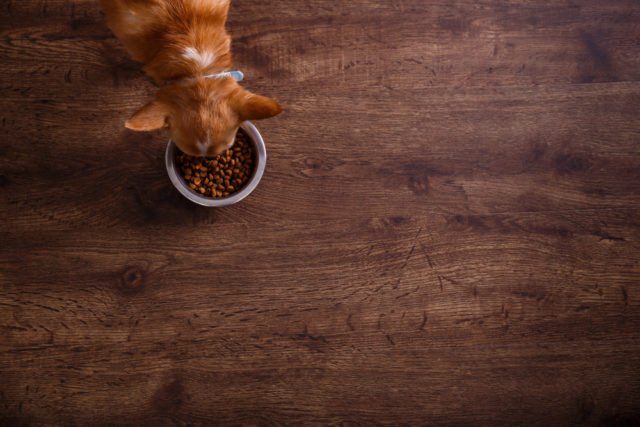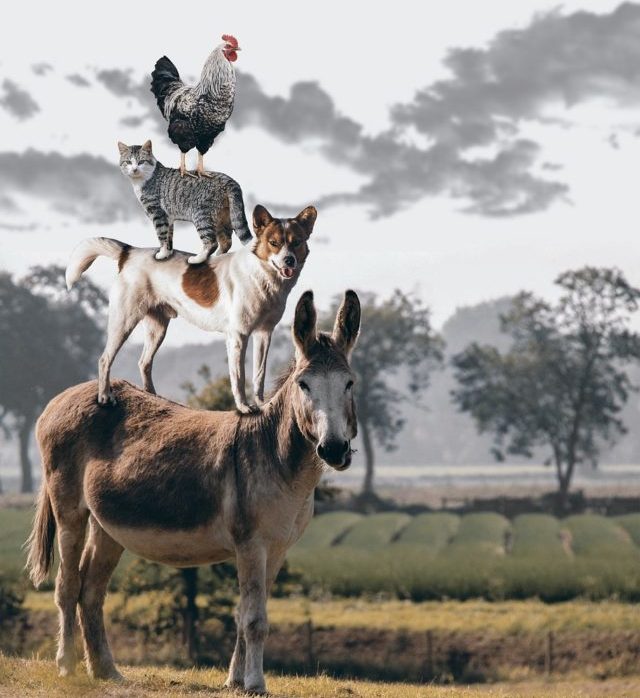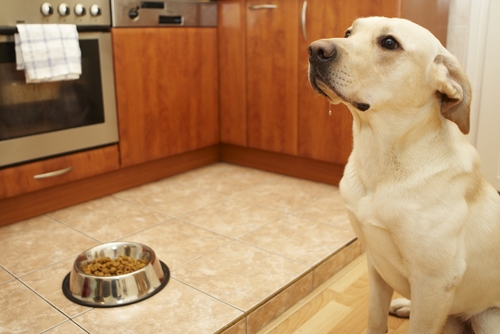
In 2017, Evanger’s Pet Food issued a voluntary recall on some of their canned diets after testing revealed they were contaminated with pentobarbital, an animal anesthetic and euthanasia drug. The findings came after five dogs fell ill, and one passed away.
In early 2018, several dog food brands owned by the J.M. Smucker Company were also found to be contaminated with pentobarbital.
While pet lovers were horrified and outraged, the Food & Drug Administration – whose job it is to ensure the safety and quality of the food we eat and feed our pets – did not do much in the wake of either incident.
In fact, despite the seriousness of the situation, the FDA declined to be interviewed by WJLA, the Washington D.C. news station that broke the Smucker’s story.
According to the website, TruthAboutPetFood.com, “no comment,” is the FDA’s standard reply in these situations.

An op-ed article on the site listed several questions submitted to the FDA by WJLA – along with the agency’s answers:
How does the FDA think pentobarbital is getting into pet food?
The FDA did not respond.
Why is pentobarbital still a supply-chain issue? Its existence dates back at least to 1998 when veterinarians were reporting dogs and cats with resistance to the drug and the FDA found it in more than 53% of detectable samples.
The FDA did not respond.
If pentobarbital was found in human food, what would be the FDA’s response?
The FDA did not respond.
And so on…

After the story broke, the FDA conducted an inspection at JBS Souderton/MOPAC, an animal feed/pet food supplier to Smucker’s and several other manufacturers. Pentobarbital contaminated tallow/animal fat was located at the plant and determined to be the source of the problem.
While you would assume something would be done, TruthAboutPetFood.com revealed that over a year later, nothing has changed.
Despite being alerted to their contaminated tallow in February, April and August of 2018, JBS Souderton/MOPAC continued to distribute their potentially contaminated ingredients, ignoring FDA notifications.
On August 8, 2018, the FDA inquired as to whether the company would issue a recall, put a hold on distributing, or send notification to all customers regarding the pentobarbital contamination. According to the FDA, JBS Souderton/MOPAC “stated [they] did not plan to do so.”
On April 23, 2019, the FDA issued a Warning Letter to JBS Souderton/MOPAC. Not a Cease & Desist letter or a fine, but a warning. The letter reads, in part:
“The violations cited in this letter are not intended to be an all-inclusive list of violations that exist at your facility. You are responsible for investigation and determining the causes of the violations identified above and for preventing their recurrence or the occurrence of other violations. As a producer of animal food products, you are responsible for ensuring that your firm complies all requirements of federal law and FDA regulations.”

It is unknown whether JBS Souderton/MOPAC’s failure to make changes to their practices has resulted in contaminated fat being sold to pet food companies or animal feed companies (for livestock), but the questions remain the same:
Why isn’t the FDA doing more than issuing warnings? Why aren’t they preventing euthanized animals from being used in pet food -as they are legally bound to do?
The letter concludes that JBS Souderton/MOPAC “failure to take prompt action to correct the violations and establish and implement procedures to ensure that these violations do not recur may result in regulatory action without further notice such as seizure and/or injunction.”
But why has the FDA given the company more than a year to comply? Shouldn’t such a serious contamination warrant prompt action – or at least notification of the food manufacturers purchasing their products?

The answers behind the FDA’s lack of action may come down to quantity. The contaminated Smucker’s products contained only “trace amounts” of pentobarbital. According to the FDA, this is not enough to cause harm to a dog.
Research conducted by the agency in 1998 and 2000 found that dogs must consume at least 50 micrograms of the drug per day in order to have any “biological response,” an amount they claim “dogs are not likely to consume.”
“…the scientists assumed that at most, dogs would be exposed to no more than 4 micrograms/kilogram body weight/day based on the highest level of pentobarbital found in the survey of dog foods. In reality, dogs are not likely to consume that much. The high number was based on the assumption that the smallest dogs would eat dog food containing the greatest amount of pentobarbital detected in the survey of commercial pet foods– 32 parts per billion.”
While the studies are 20 years old, the FDA website declares the content “current as of: 11/21/2017.”

What do you make of the FDA’s handling of pentobarbital contamination in pet food and animal feed? What do you think should be done to improve the standards when it comes to what our pets eat?
To learn more about this latest finding, check out the entire post from TruthAboutPetFood.com.
The post Is The FDA Doing Enough To Keep Euthanasia Drugs Out Of Your Dog’s Food? appeared first on iHeartDogs.com.
via Whisker Therapy